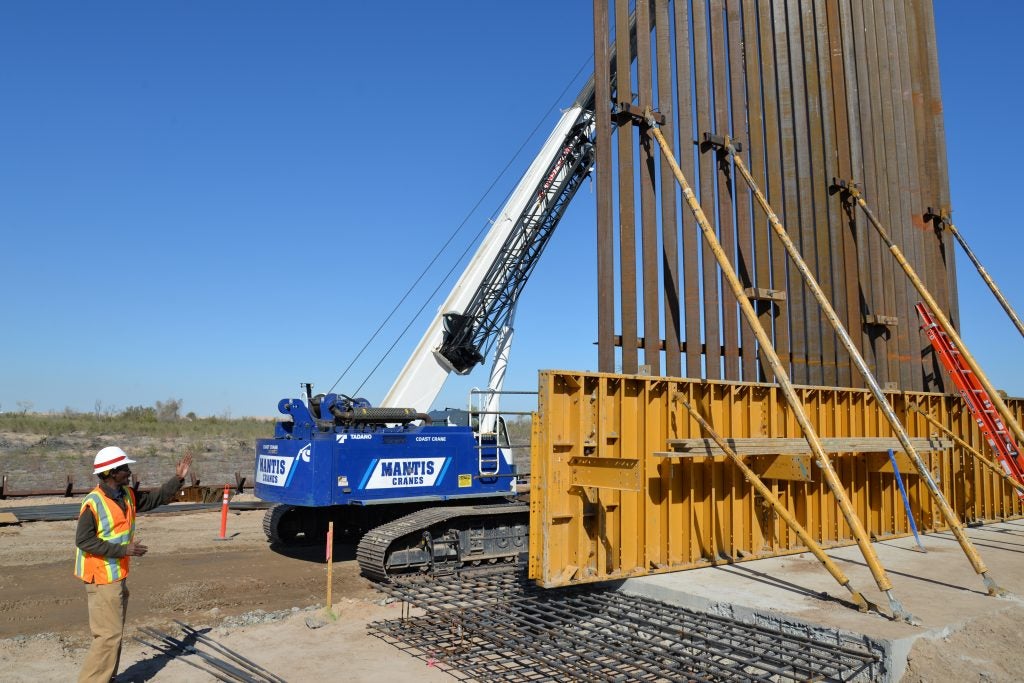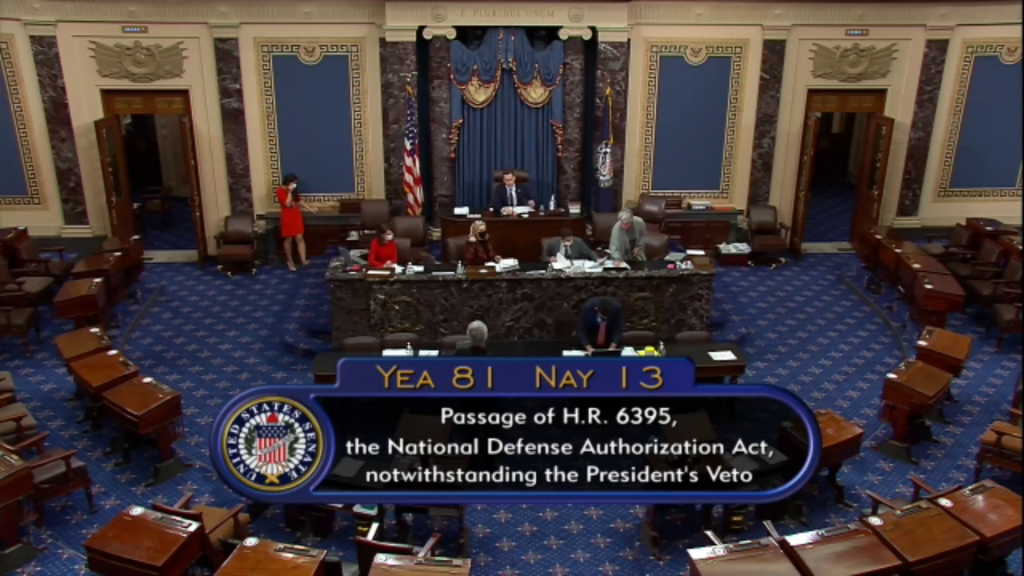New Year’s Day Vote Overrides Trump’s National Defense Authorization Act Veto
A rare New Year’s Day vote saw the United States Senate vote 81-13 to override President Donald Trump’s veto of the 2021 National Defense Authorization Act, marking the first time the outgoing president’s veto of a bill had been overridden.
Independent Senator Bernie Sanders and Democratic Senator Ed Markey had previously delayed a vote to override the veto of the $741 billion spending package, by threatening to filibuster the vote unless Senate Majority Leader Mitch McConnell also brought a vote to pass $2,000 COVID-19 stimulus checks. The bid ultimately failed after McConnell invoked cloture to limit debate to passing the override, with both senators voting against the override. Other attempts by Democratic Senators to pass the expansion failed as well.
The House had voted to override the veto on December 28, with Speaker of the House Nancy Pelosi saying then:
“With this overwhelmingly bipartisan vote, the House has upheld our sacred Constitutional responsibility to keep our country and our people safe. The National Defense Authorization Act has been passed on a bipartisan and bicameral manner for sixty years, and it will become law, despite the President’s dangerous sabotage efforts.”
President Trump had announced on December 23, that he would veto the bill, which funds military spending and directs strategy, the sixth time the bill had been vetoed since the first NDAA in 1961. In a statement made to Congress, he wrote:
“My Administration recognizes the importance of the Act to our national security. Unfortunately, the Act fails to include critical national security measures, includes provisions that fail to respect our veterans and our military’s history, and contradicts efforts by my Administration to put America first in our national security and foreign policy actions. It is a “gift” to China and Russia.”

He then laid out the reasoning for the veto, which included the lack of a repeal of Section 230 of the Communications Decency Act (Trump described the section, which gives website publishers immunity from legal liability for third party content, as a “serious threat to our national security and election integrity.” This came after Twitter and other social media platforms marked multiple tweets of his claiming fraudulent mail-in voting in the presidential election as disinformation). The inclusion of language that would require the renaming of military installations named after Confederate leaders; limitations on funding that can be used on emergency military construction projects (used by Trump to fund construction of the border wall); and limitations on presidential authority to order troop withdrawals from Germany, South Korea and Afghanistan.
Following the Senate override of the NDAA, Trump voiced his displeasure, saying on Twitter that Senate Republicans had “just missed the opportunity to get rid of Section 230, which gives unlimited power to Big Tech companies“, describing it as “Pathetic!!!”. He also blasted Senate Republicans for not passing the expansion of the COVID-19 stimulus checks, calling it “Not fair, or smart!”, splitting with McConnell’s description of the expanded checks as “socialism for rich people“.

